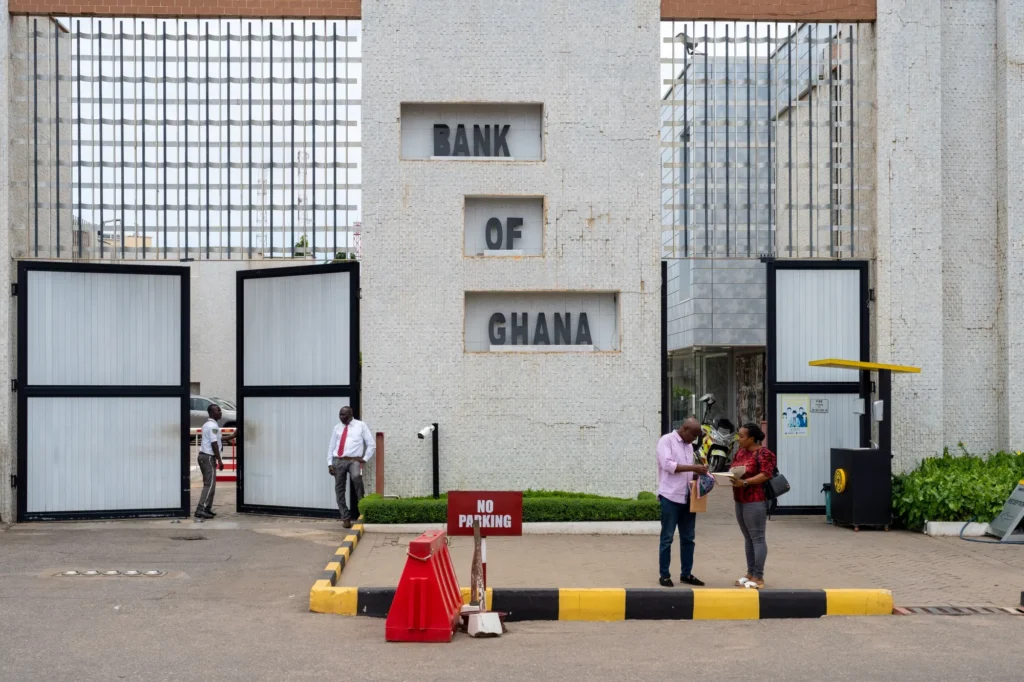Monetary Policy Rate Held Steady at 28% by Bank of Ghana Amid Economic Stability Indicators

The Bank of Ghana has opted to keep its benchmark policy rate unchanged at 28 percent, citing encouraging signs of declining inflation and a significantly strengthened cedi. The decision was announced by Governor Dr. Johnson Asiama during a press briefing held in Accra last Friday, following the latest Monetary Policy Committee (MPC) meetings.
According to the Governor, the central bank’s decision was informed by updated economic forecasts which indicate that inflationary pressures are easing more rapidly than previously anticipated. This progress has been attributed to a combination of sustained tight monetary policy, relative stability in the exchange rate, disciplined fiscal management, and improved liquidity control measures.
Headline inflation dropped to 21.2% in April 2025, reflecting a 2.6 percentage point decrease since the beginning of the year. Dr. Asiama credited this downward trend to several contributing factors, including lower petroleum prices at the pumps, enhanced liquidity operations, and most notably, the cedi’s recent appreciation.
“Given current dynamics, we now expect inflation to reach the medium-term target faster than earlier projected—likely by the first quarter of 2026 instead of the second quarter,” Dr. Asiama remarked. He also reiterated the central bank’s aim of achieving an end-of-year inflation target of 12 percent, assuming no significant external or domestic shocks occur.
Despite this positive outlook, the central bank emphasized that inflation remains above the desired threshold. As such, the MPC determined that holding the policy rate steady was the most prudent course of action to maintain momentum in the ongoing disinflation process.
“Considering the current economic environment, the Committee unanimously agreed to maintain the policy rate at 28.0 percent,” Dr. Asiama stated.
In addition to progress on inflation, the performance of the Ghanaian cedi was a major point of emphasis during the briefing. The local currency, which had struggled in previous years due to global and domestic pressures, has shown remarkable strength in 2025. As of May 21, the cedi had appreciated 24.1 percent against the US dollar, 16.2 percent against the British pound, and 14.1 percent against the euro.
Dr. Asiama highlighted a range of factors driving this renewed confidence in the cedi. Chief among them are the continuation of a tight monetary stance, improved investor and market sentiment, record levels of foreign exchange reserves, and stronger regulatory controls in the foreign exchange market.
He also noted that the country’s external sector has seen steady improvements. In the first quarter of 2025, Ghana recorded a provisional current account surplus of US$2.1 billion, bolstered by higher prices for key export commodities such as gold and cocoa, increased export volumes, and strong remittance inflows from abroad.
These gains have contributed to a balance of payments surplus of US$1.1 billion during the same period. Moreover, Gross International Reserves rose to US$10.7 billion by the end of April, providing 4.7 months of import cover, a significant buffer for external stability.
Looking ahead, the Bank of Ghana reaffirmed its commitment to preserving macroeconomic stability and ensuring that recent gains in inflation control and currency strength are not reversed. The central bank pledged to stay alert to global and domestic economic shifts and to adjust its monetary policy tools as needed to support sustained economic recovery.
“We remain committed to reinforcing macroeconomic stability and staying the course on disinflation in the coming quarters,” Dr. Asiama concluded.
The decision to hold the policy rate steady reflects a cautious optimism: while progress has clearly been made, the central bank remains mindful of lingering risks and the need for consistency in economic management.







